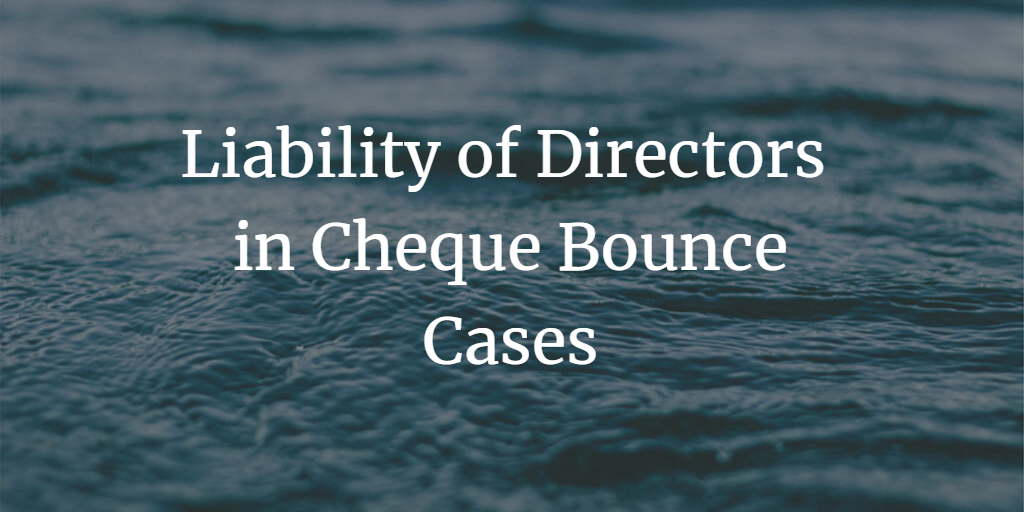Liability of Directors of Company in Cheque Bounce Cases in Indian law

Table of Contents
Introduction
Liability under Section 138 of the Negotiable Instruments Act, 1881
Role of Directors in Cheque Bounce Cases
Penalties and Consequences
Preventive Measures
Conclusion
1. Introduction
Cheque bounce incidents can lead to serious legal consequences for both individuals and companies. The Indian judiciary system, with its comprehensive legal provisions, ensures justice for the aggrieved parties. This article will explore the liability of company directors in cheque bounce cases under Indian law.
2. Liability under Section 138 of the Negotiable Instruments Act, 1881
The cornerstone of the cheque bounce law in India is Section 138 of the Negotiable Instruments Act, 1881. This section lays out the conditions under which a party can be held liable for a cheque bounce. In the context of a company, the directors can be held responsible if they were in charge of the company's affairs when the cheque was issued and subsequently bounced.
3. Role of Directors in Cheque Bounce Cases
While a company is a separate legal entity, the directors are often held accountable for its actions. Their liability is contingent on their involvement in the issuance of the bounced cheque. Generally, if a director was aware of the cheque being issued and didn't object, they could be held liable. However, if they can prove they were not part of the process, they might be exonerated.
4. Penalties and Consequences
The penalties for cheque bounce cases under Indian law can be severe. The party responsible could face imprisonment for up to two years, or a fine that could extend to twice the cheque amount, or both. Directors found guilty could also face disqualification from holding directorship positions in the future.
5. Preventive Measures
There are preventive measures that directors can take to protect themselves from liability. One crucial step is to maintain clear and comprehensive records of their involvement in financial decisions. Directors should also ensure that the company maintains sufficient funds in its account to honour all issued cheques.
6. Conclusion
The liability of directors in cheque bounce cases is a complex issue under Indian law. It is crucial for directors to understand their legal responsibilities to avoid potential legal repercussions. Seeking advice from legal professionals can help directors navigate the complexities of the law and prevent potential cheque bounce incidents.


